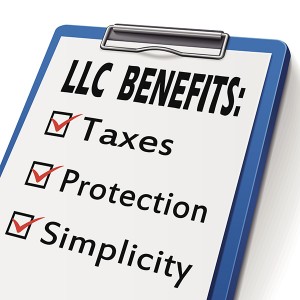Unlike a corporation, the observance of “corporate formalities” is not an important part of maintaining the shield from liability and other protections and advantages offered by the LLC form of doing business. The term “corporate formalities” normally means holding annual meetings of the members, providing written notice in advance of such meetings, preparing detailed minutes of matters decided upon at such meetings, and so forth. The Pennsylvania Act indicates that failure to observe such corporate formalities shall not be considered a factor tending to establish that the members have personal liability for any debt, obligation, or liability of the LLC where the Certificate of Organization or Operating Agreement of the LLC do not specifically require such formalities to be observed. However, this does not mean that LLC members are completely free to ignore the separate legal identity of the LLC. For example, members must always keep in mind that the LLC assets and funds are owned by the LLC, not by the LLC’s members. Separation of LLC assets from members personal assets is very important. It is also important for the members not to pay personal expenses from the LLC funds or bank accounts.
A. Member Votes. Certain fundamental changes in the life of an LLC, such as a merger or liquidation, require a vote by the members. These fundamental changes include amendment of the Certificate of Organization, amendment of the Operating Agreement, merger or consolidation of the LLC, and winding up and dissolution of the LLC.
B. Manager Action. Matters of general operating policy should be considered and authorized by the general manager or managers of the LLC. Although there is no statutory requirement with respect to how frequently the managers should act, it is advisable that they meet at least quarterly. In addition, a specially convened meeting of the managers may be called if action is required before the next regular meeting. Action by the managers may also be taken by unanimous written consent. The managers can vote without a formal meeting but if a significant matter is being voted on it may prove useful to schedule regular managers’ meetings to address it on a quarterly or at least annual basis.
Matters appropriate for manager action that can be immediately approved by written consent or voted on at a meeting, include the following:
1. Appointment of officers, setting of salaries, and declaration of bonuses (at least annually, typically at a meeting of the managers immediately following the annual meeting of members).
2. Opening or closing of LLC bank accounts and the designation and change of LLC managers and officers authorized as signatories. The signing member should secure a copy of the signature card from the bank and place it in the LLC binder.
3. LLC borrowing or loan agreements and delivery of collateral in connection with such agreements.
4. Consummation of material contracts for the purchase or lease of significant assets or services such as the hiring of a payroll service or the purchase of health insurance.
5. The adoption of 401K or SIMPLE IRA pension plans, profit-sharing plans, bonus, and other employee benefit plans.
6. Amendment of LLC bylaws (if any).
7. Review of financial statements and tax returns of the LLC.
8. Appointment of auditors, if any.
9. Any action that requires a member vote listed in the Operating Agreement.
10. The issuance and sale by the LLC of additional interests in the LLC or the repurchase of LLC units by the LLC or members.
In the case of any such actions listed above, the Managing Member of the LLC should prepare minutes of the meeting and indicate what actions were approved or prepare the form of written consent evidencing any such manager or member actions.
If you have any questions about your LLC feel free to call Gregory J. Spadea of Spadea & Associates, LLC in Folsom at 610-521-0604.











